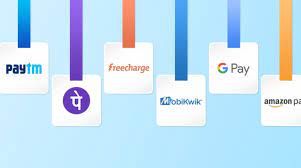PREPAID PAYMENT INSTRUMENTS
Why in News?:
A committee reviewing customer service standards for RBI (Reserve Bank of India) regulated entities has recommended the extension of Deposit Insurance and Credit Guarantee Corporation (DICGC) to Prepaid Payment Instrument (PPI) to protect against fraud and unauthorized transactions.
The committee has recommended that the RBI should examine the possibility of extending DICGC cover to PPI segment, including bank PPIs and later non-bank PPIs.
The RBI should incentivize regulated entities to improve customer service and strengthen overall customer protection efforts.

What are Prepaid Payment Instruments?:
PPIs are instruments that facilitate the purchase of goods and services, conduct of financial services and enable Remittance facilities, among others, against the money stored in them.
PPIs can be issued as cards or wallets.
There are two types of PPIs,
Small PPIs and full-KYC (know your customer) PPIs. Further, small PPIs are categorized as – PPIs up to Rs 10,000 (with cash loading facility) and PPIs up to Rs 10,000 (with no cash loading facility).
PPIs can be loaded/reloaded by cash, debit to a bank account, or credit and debit cards.
The cash loading of PPIs is limited to Rs 50,000 per month subject to the overall limit of the PPI.
Issuance:
PPIs can be issued by banks and non-banks after obtaining approval from the RBI.
As of November 2022, over 58 banks have been permitted to issue and operate prepaid payment instruments.
There are 33 non-bank PPI issuers as of May 2023.




.jpg)
.jpg)
.jpg)
.jpg)
.jpg)

.jpg)


.jpg)
